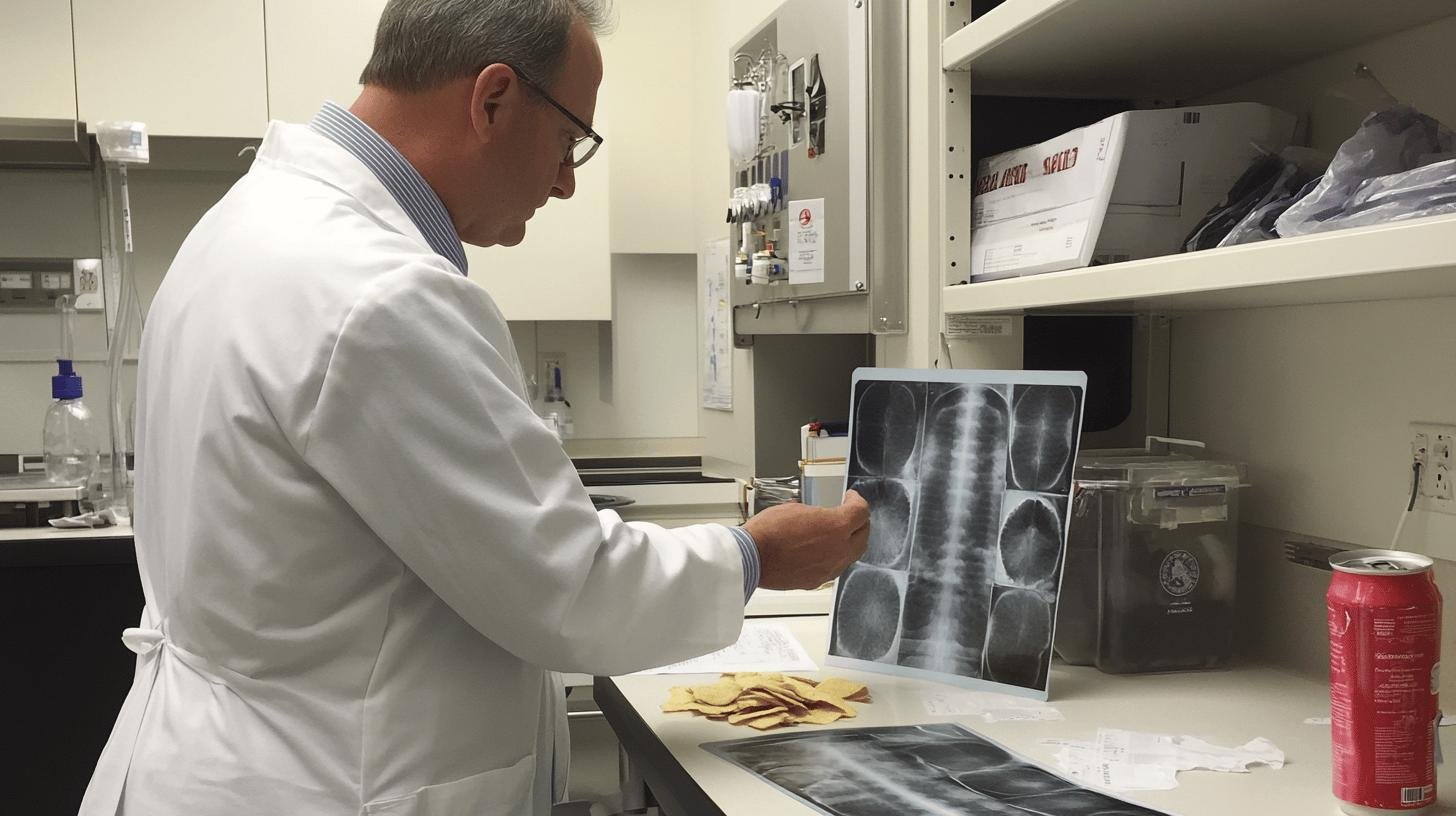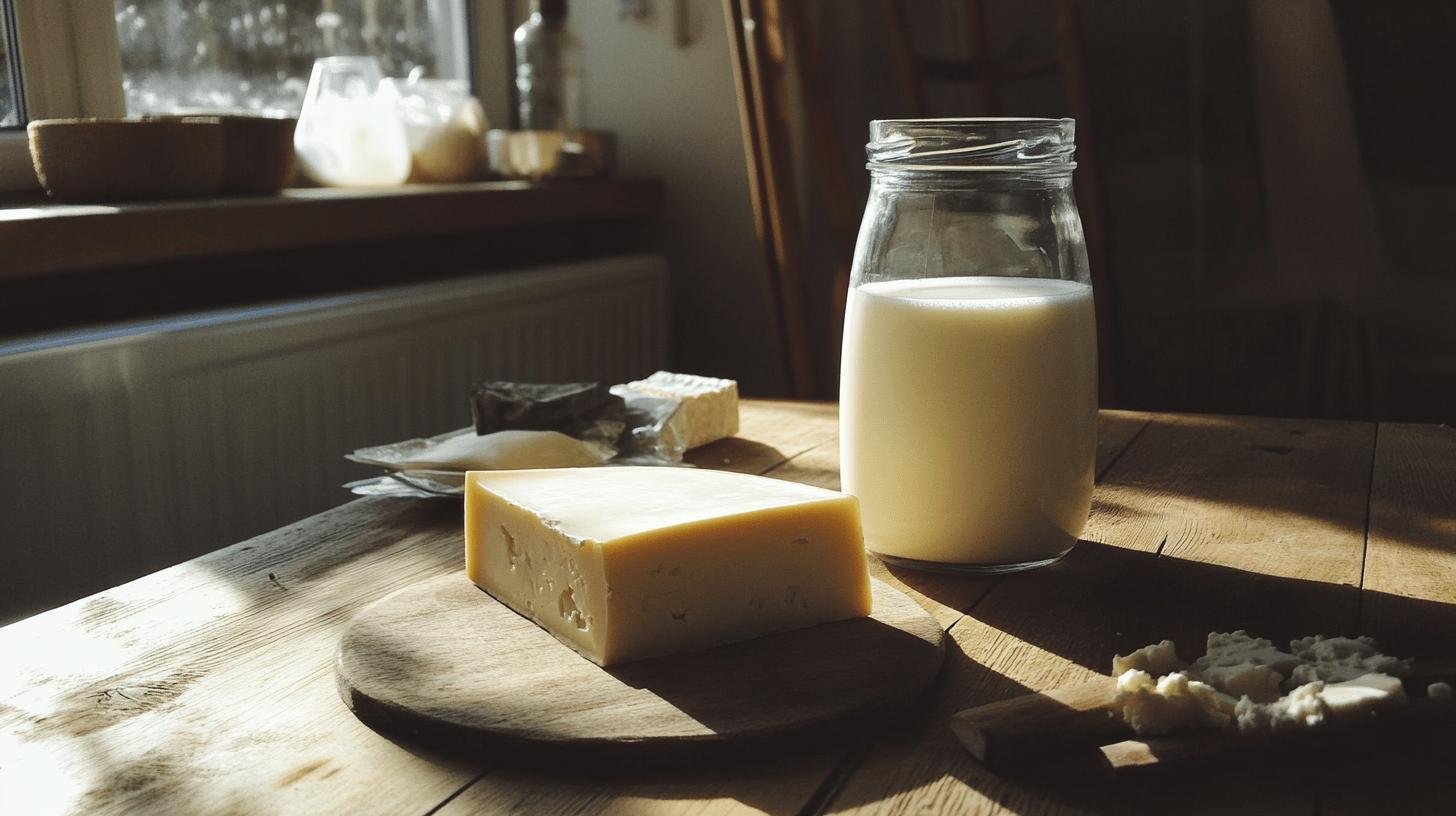TL;DR:
- Avoid these foods during lung infections:
- Processed Foods: High sodium causes fluid retention.
- Sugary Foods/Drinks: Weakens immunity.
- Fried Foods: Triggers inflammation and mucus production.
- Dairy: Can thicken mucus and complicate breathing.
- Alcohol: Suppresses immunity and causes dehydration.
- Opt for lung-friendly foods:
- Berries: Antioxidants fight inflammation.
- Leafy Greens: Boost immune function.
- Fatty Fish: Omega-3s reduce inflammation.
- Nuts: Essential nutrients and healthy fats.
- Stay hydrated; water and herbal teas help maintain respiratory health.
Do you think your kitchen might be harbouring hidden culprits affecting your lungs? We often hear about healthy foods that can boost our immunity, but how about flashing a light on the bad food for lung infection? It’s a twist that some of our favourite treats—like those salty chips or sugary sodas—might actually make lung infections harder to kick. Yep, what you munch on can greatly impact how your lungs feel and function. Now, let’s chat about what foods you should ditch for happier, healthier lungs. Trust me, your lungs will thank you for it!
Foods to Avoid with Lung Infections
It’s important to consider your diet when managing lung infections. What you eat can aid or hinder recovery; certain foods might worsen symptoms. The key issue is inflammation and added stress on your respiratory system. Foods high in sodium, sugar, and unhealthy fats can make breathing more difficult.
Here are some of the worst foods for breathing issues that you should avoid:
- Processed Foods: High in sodium, leading to fluid retention.
- Sugary Foods and Drinks: Can weaken your immune system.
- Fried Foods: Contains unhealthy oils that cause inflammation.
- Dairy Products: May thicken mucus, complicating breathing.
- Alcohol: Suppresses the immune system and causes dehydration.
These foods impact your lungs by increasing stress and inflammation. High-sodium diets, like processed snacks, can raise blood pressure and cause fluid retention. Sugary foods like sodas and sweets can weaken immunity, making fighting infections tougher. Fried foods with unhealthy oils can trigger inflammation and more mucus production. Dairy can thicken mucus for some, worsening symptoms. Remember these tips to help your lungs recover!
Impact of Sugary and Salty Foods on Lung Health

Sugar and salt can cause inflammation, which is problematic if you’re battling a lung infection. Excessive sugar intake weakens the immune system, hindering your body’s ability to fight off infections. Similarly, high salt intake can lead to fluid retention and bloating, putting additional pressure on your lungs and making breathing difficult.
Here’s how some common foods affect lung health:
| Food Type | Effects on Lungs |
| —————| —————————————-|
| Sodas | Inflammation weakens immune response |
| Chips | Causes fluid retention and bloating |
| Candy | Weakens the immune system |
| Processed Meats| Increases inflammation and lung stress |
Monitoring sugar and salt intake is crucial for lung health. Less sugar means less inflammation for your body to fight. Reducing salt intake minimizes bloating and lung pressure. These adjustments allow your respiratory system to function optimally. So, next time you’re tempted by soda or salty snacks, consider your lung health and reach for an apple instead.
Role of Fried and Processed Foods in Lung Issues
Fried foods worsen lung infections by causing inflammation and increased mucus production. These delicious crispy treats contain unhealthy oils, triggering inflammation and airway swelling. This results in more mucus, similar to breathing through a narrowing straw. It’s best to avoid fried foods if you have lung issues.
Processed meats don’t benefit your lungs either. Meats like bacon and sausages contain nitrates used for preserving their pink colour. However, nitrates stress your lungs and can lead to inflammation. There’s even a link between processed meats and lung cancer risk. To keep your lungs healthy, choose fresh options over processed meats.
For better lung health, opt for fresh, minimally processed foods. Fruits, vegetables, and lean proteins should be your go-to choices. These won’t burden your body with inflammation-causing substances. Selecting whole foods gives your lungs the best chance to stay strong. When grocery shopping, think fresh over fried or processed. Your lungs will appreciate it!
Dairy and Mucus Production: A Concern for Lung Health

Dairy products can be problematic during lung infections as they may thicken mucus, complicating breathing. For some, consuming dairy increases phlegm production, making breathing difficult. Imagine having to clear your throat constantly—it’s not pleasant! Monitoring dairy intake is essential when managing lung issues.
Consider limiting or avoiding these dairy products:
- Milk
- Cheese
- Yoghurt
If you’re sensitive to dairy, alternatives like almond milk, oat milk, or coconut yoghurt are available. These options don’t increase mucus production, helping keep your airways clearer for easier recovery. Remember, it’s all about finding what works best for your body!
Alternatives and Dietary Recommendations for Lung Health
Your diet plays a significant role in recovery from lung infections. Foods rich in antioxidants are especially helpful as they support the immune system and reduce inflammation. Found in colourful fruits and vegetables, antioxidants combat free radicals, preventing damage. Omega-3 fatty acids in fish like salmon and seeds like flaxseeds also help reduce inflammation and support lung health.
Here’s a quick list of lung-friendly foods for recovery:
- Berries: Packed with inflammation-fighting antioxidants
- Leafy Greens: Full of immune-boosting vitamins
- Fatty Fish: Rich in inflammation-reducing omega-3s
- Nuts: Provide healthy fats and essential nutrients
Hydration and balanced nutrition are also crucial. Staying hydrated thins mucus and supports respiratory function. Water should be your primary beverage, but herbal teas can offer a soothing alternative. Aim for a balanced diet of lean proteins, whole grains, and healthy fats to help your body heal. By prioritizing these lung-friendly foods and staying hydrated, you’re giving your respiratory system the support it needs to recover. Cheers to healthier lungs!
Final Words
We’ve navigated through the maze of dietary choices that affect lung health. From sodium-loaded processed snacks to sugar-packed sweets, these foods mess with your immune system, worsening lung infections. Fried and processed foods may cause more trouble with inflammation, while dairy products can boost mucus production, complicating things further.
Choosing lung-friendly options like antioxidants and omega-3-rich foods is essential for smoother breathing. Swap out bad food for lung infection with nourishing alternatives to clear the path for better lung health! Cheers to healthier choices and happier lungs!
FAQ
What foods are good for healthy lungs and improved breathing?
Fruits, vegetables, and lean proteins are foods for healthy lungs. Antioxidant-rich options like berries, leafy greens, and nuts are also beneficial. Hydrating with water and herbal teas supports respiratory function.
What are the worst foods for the lungs?
Processed foods, sugary treats, and fried items can irritate the lungs. These foods may lead to inflammation and worsen breathing problems. Dairy might increase mucus production, complicating lung issues.
What foods should you avoid if you have a respiratory infection?
Avoid foods high in sodium, sugar, and unhealthy fats. Processed and fried foods can exacerbate symptoms. Dairy products might thicken mucus and worsen discomfort during respiratory infections.
Is milk good for lung infections?
Milk might not be ideal for lung infections. It can thicken mucus and potentially worsen symptoms. If respiratory issues arise, consider non-dairy alternatives.
Which juice is good for lung infection?
Juices rich in vitamin C, such as orange or grapefruit, can support immune function. Opt for natural and fresh juices to avoid added sugars that could impact lung health.
What foods help repair lungs?
Antioxidant-rich foods like berries and leafy greens support lung repair. Omega-3-rich fish reduces inflammation. Balanced hydration aids in thinning mucus and promoting lung health.
What foods clean the lungs?
Fruits and veggies high in antioxidants and fibre help cleanse the lungs. Herbal teas and water keep the respiratory system functioning. Aim for a varied and nutrient-rich diet.
What foods should you avoid when you have a lung infection?
Avoid processed foods, sugary drinks, and fried items when you have lung infections. These can increase inflammation and mucus production. Dairy may also thicken mucus.
What food is not suitable for the lungs?
High-sodium foods, sugary items, and processed meats stress the lungs. Fried foods contribute to inflammation. Limiting these helps manage breathing problems and supports better lung health.

